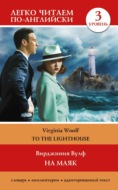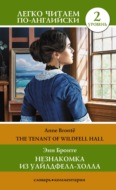Kitabı oku: «Дом с привидениями. Уровень 2 / A Haunted House», sayfa 2
Monday or Tuesday
Lazy and indifferent, the heron passes over the church beneath the sky. White and distant, the sky covers and uncovers. The sky moves and remains. A lake? A mountain? Oh, perfect—the sun! Ferns then, or white feathers, for ever and ever.
We are desiring truth. We are awaiting it. We are laboriously distilling a few words. A cry starts to the left. Another cry starts to the right. Wheels strike divergently. Ever desiring truth. The dome is red. Coins hang on the trees. Smoke trails from the chimneys; bark, shout, cry “Iron for sale”—and truth?
Men’s feet and women’s feet, black or gold-encrusted. This foggy weather, sugar? No, thank you. The commonwealth of the future. The firelight is darting. The firelight is making the room red. Black figures and their bright eyes. Outside a van discharges. Miss Thingummy drinks tea at her desk.
Leaves. Silver-splashed. Home or not home. Gathered, scattered, squandered, swept up, down, torn, sunk, assembled leaves—and truth?
Now to recollect by the fireside on the white square of marble. Words are rising from ivory depths. They shed their blackness, blossom and penetrate. The book fell down. In the flame, in the smoke, in the momentary sparks, the marble square pendant, minarets beneath and the Indian seas, stars glint—truth?
Lazy and indifferent the heron returns. The sky veils the stars; then bares them.
An Unwritten Novel
Such an expression of unhappiness—and one’s eyes were sliding above the paper’s edge to the poor woman’s face. It’s almost a symbol of human destiny. Life is what you see in people’s eyes. Life is what they learn, though they want to hide it,—what? Life is like that. Five faces opposite—five mature faces—and the knowledge in each face. Strange, though, how people want to conceal it! Marks of reticence are on all those faces. Lips are shut. Eyes are shaded. Each one is trying to hide or stultify his knowledge. One smokes. Another reads. The third checks his pocket book. The fourth stares at the map. The fifth does nothing at all. That’s terrible. She looks at life. Ah, my poor, unfortunate woman, play the game!
She looked up. She shifted slightly in her seat and sighed. As if she apologizes and at the same time says to me,
“If you knew!”
Then she looked at life again.
“But I know,” I answered silently.
I was glancing at the Times.
“I know everything”.
‘Peace between Germany and the Allied Powers was yesterday officially ushered in at Paris—Signor Nitti, the Italian Prime Minister.
A passenger train at Doncaster was in collision with a goods train.’
We all know—the Times knows—but we pretend that we don’t.”
My eyes crept over the paper’s rim. She shuddered. She twitched her arm queerly to the middle of her back. She shook her head. Again I dipped into my great reservoir of life.
“Take what you like,” I continued, “births, deaths, marriages. The habits of birds, Leonardo da Vinci, the Sandhills murder, high wages and the cost of living. Oh, take what you like,” I repeated, “it’s all in the Times!”
Again with infinite weariness she moved her head from side to side. Then it settled on her neck.
The Times was no protection against her sorrow. The best thing was to fold the paper. It made a perfect square, crisp, thick, impervious even to life. I glanced up quickly. She pierced through my shield. She gazed into my eyes. Her twitch denied all hope. Her twitch discounted all illusion.
So we rattled through Surrey and across the border into Sussex. The other travellers left. Apart from us, only one of them stayed. Soon we were alone together. Here was Three Bridges station. We drew slowly down the platform. We stopped.
Was he going to leave us? At that instant he roused himself. He crumpled his paper contemptuously. He burst open the door, and left us alone.
The unhappy woman addressed me, palely and colourlessly. She talked of stations and holidays. She talked of brothers at Eastbourne, and the time of year. It was, I forget now, early or late. But at last she breathed,
“To leave home—that’s the worst thing.”
Ah, now we approached the catastrophe,
“My sister-in-law,” the bitterness of her tone was like lemon on cold steel, “nonsense, she likes to say—that’s what they all say.”
While she spoke she fidgeted.
“Oh, that cow!” she said nervously.
Then she shuddered. Then she made the awkward movement. Then again she looked the most unhappy woman in the world.
“Sisters-in-law…” I began.
Her lips pursed. She took her glove. She rub hard at a spot on the window-pane. But the spot remained. She sank back. Something impelled me to take my glove and rub my window. There, too, was a little speck on the glass. But it remained. And then the spasm went through me. I crooked my arm. Then I plucked at the middle of my back. My skin felt like the damp chicken’s skin in the poulterer’s shop-window. One spot between the shoulders itched and irritated. Can I reach it?
Surreptitiously I tried. She saw me. A smile of infinite irony. Infinite sorrow, flitted and faded from her face. She shared her secret, passed her poison. She will speak no more. I read her message. I deciphered her secret.
Hilda is the sister-in-law. Hilda? Hilda? Hilda Marsh. Hilda stands at the door, Hilda holds a coin.
“Poor Minnie, so thin, this old cloak! Well, well, with two children. No, Minnie, I’ve got it. Here you are, cabby. Come in, Minnie. Oh, I can carry you. Give me your basket!”
So they go into the dining-room.
“Aunt Minnie, children.”
The knives and forks sink slowly. They get down. Bob and Barbara. But this we’ll skip. Ornaments, curtains, trefoil china plate, yellow oblongs of cheese, white squares of biscuit. Skip, oh, but wait! One of those shivers. Bob stares at her. He has a spoon in mouth.
“Eat your pudding, Bob”; but Hilda disapproves.
Skip, skip, till we reach the upper floor. We reach stairs; linoleum. Oh, yes! little bedroom. One can see the roofs of Eastbourne. One can see zigzagging roofs like the spines of caterpillars. This way, that way, red and yellow.
Now, Minnie, the door’s shut. Hilda heavily descends to the basement. You unstrap the straps of your basket. You lay on the bed a meagre nightgown. The looking-glass—no, you avoid the looking-glass. Some methodical disposition of hat-pins. Perhaps the shell box? You shake it. It’s the pearl, that’s all. And then the sniff and the sigh. Three o’clock on a December afternoon. One light in the skylight of a drapery emporium. Another high in a servant’s bedroom.Nothing to look at3.
A moment’s blankness. What are you thinking? She’s asleep. What does she think about? At three o’clock in the afternoon? Health, money, hills, her God? Yes, Minnie Marsh is sitting on the edge of the chair. Minnie Marsh is looking over the roofs of Eastbourne. Minnie Marsh prays to God. That’s all very well. She may rub the pane too, as though to see God better. But what God does she see? Who’s the God of Minnie Marsh? The God of the back streets of Eastbourne? The God of three o’clock in the afternoon? I, too, see roofs. I see sky. But, oh, dear—to see Gods! More like President Kruger than Prince Albert. I see him on a chair. I see him in a black frock-coat, not so high. I can manage a cloud or two for him. And then his hand holds a rod, a truncheon. Black, thick, thorned, Minnie’s God! Did he send the itch and the patch and the twitch? Is that why she prays? She rubs the stain of sin on the window. Oh, she committed some crime!
The woods flit and fly. In summer there are bluebells. When spring comes, primroses. A parting, was it, twenty years ago? Broken vows? Not Minnie’s! She was faithful. How she nursed her mother! All her savings on the tombstone—wreaths under glass—daffodils in jars. But the crime… They may say she kept her sorrow. She suppressed her secret—her sex—the scientific people. But what flummery is it! No—more like this.
She was passing down the streets of Croydon twenty years ago. The violet loops of ribbon in the draper’s window caught her eye. She lingers. It was past six. She can reach home if she runs. She pushes through the glass door. It’s sale-time. Shallow trays brim with ribbons. She pauses. She pulls this. No need to choose. No need to buy. Each tray with its surprises.
“We don’t shut till seven”.
It is seven.
She runs. She rushes. She reaches home, but too late. Neighbours—the doctor—baby brother—the kettle—scalded—hospital—dead—or only the shock of it, the blame? Ah, butthe detail matters nothing4! It’s what she carries with her. The spot, the crime, the thing to expiate are always there between her shoulders.
“Yes,” she nods to me, “it’s the thing I did.”
Whether you did, or what you did,I don’t mind5. It’s not the thing I want. The draper’s window—that is enough. A little cheap perhaps, a little commonplace. The crime. Let me peep across again. So many crimes aren’t your crime. Your crime was cheap, only the retribution solemn. Now the church door opens. The hard wooden pew receives her. She kneels on the brown tiles. She prays every day, winter, summer, dusk, dawn. All her sins fall, fall, for ever fall. The spot receives them. It’s raised. It’s red. It’s burning. Next she twitches. Small boys point.
“Bob at lunch today.”
But elderly women are the worst.
Indeed now you can’t pray any longer. Kruger sank beneath the clouds. That’s what always happens! When you see him, feel him, someone interrupts. It’s Hilda now.
How you hate her! She’ll lock the bathroom door overnight. But you want cold water. And John at breakfast – the children—meals are the worst. Sometimes there are friends. Ferns don’t altogether hide them. So you go along the front. The waves are grey. The papers blow. The glass shelters are green and draughty. Ah, that’s a nigger! That’s a funny man. That’s a man with parakeets—poor little creatures! Is there no one here who thinks of God? Just up there, over the pier, with his rod. But no—there’s nothing but grey in the sky. If it’s blue the white clouds hide him. And the music—it’s military music. What are they fishing for? Do they catch them? How the children stare! Well, then home.
The words have meaning. An old man with whiskers can speak them. No, no, he didn’t really speak. But everything has meaning. Placards near doorways—names above shop-windows—red fruit in baskets—women’s heads in the hairdresser’s. All say “Minnie Marsh!” But here’s a jerk.
“Eggs are cheaper!” That’s what always happens!
I was heading her over the waterfall. A sheep turns the other way and runs between my fingers like a flock of dream. Eggs are cheap now.
The crimes, sorrows, rhapsodies, or insanities for poor Minnie Marsh. Never late for luncheon. Never without a mackintosh. Never utterly unconscious of the cheapness of eggs. So she reaches home. She scrapes her boots.
Do I understand you? But the human face—the human face at the top of the paper holds more. It withholds more. Now she looks out. In the human eye there’s a break—a division. How do you define it? When you grasp the stem the butterfly is away. The moth that hangs in the evening over the yellow flower. It moved. I won’t raise my hand. Quiver, life, soul, spirit—I, too, on my flower—the hawk over the down—alone. To rise in the midday; over the down. The flicker of a hand. Alone, unseen. So still and so lovely. The eyes of others are our prisons. Their thoughts are our cages. Air above, air below. And the moon and immortality.
Oh, but I drop! Are you down too? You are in the corner. What’s your name—woman—Minnie Marsh? Some such name as that? There she is. She opens her hand-bag. She takes a hollow shell from—an egg. Who was saying that eggs were cheaper? You or I? Oh, it was you who said it on the way home. You remember. The old gentleman was opening his umbrella—or sneezing? Anyhow, Kruger went. You came home. You craped your boots. Yes. And now you lay across your knees a pocket-handkerchief. You drop little angular fragments of eggshell into it. Fragments of a map—a puzzle. I want to join them together! She moved her knees. Gold and silver. But to return…
To what, to where? She opened the door. She put her umbrella in the stand. The whiff of beef from the basement; dot, dot, dot. But what I cannot thus eliminate is what I must. With the courage of a battalion and the blindness of a bull. Indubitably, the figures behind the ferns, commercial travellers. There I was hiding them all this time. Rhododendrons will conceal him utterly. I starve. I strive for red and white. But rhododendrons in Eastbourne—in December—on the Marshes’ table—no, no, I dare not. It’s all a matter of crusts and cruets, frills and ferns. Perhaps there’ll be a moment later by the sea.
Ücretsiz ön izlemeyi tamamladınız.








